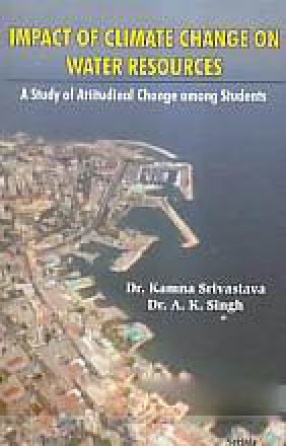
A K Singh

81 books











India is home to almost 20 per cent of the world's children. More than 1/3rd of the country's population comprising of about 440 million is below 18 years. It has been assumed that about 40 per cent of these children are in need of care and protection, which indicates the extent of the social problem. In a country like India with its multicultural, multi-ethnic and multi-religious population, the problems of socially marginalized, economically backward and ...

India has witnessed remarkable progress in human and economic development since Independence. The human activities are adversely affecting the environment and ecology while the global issues like ozone layer depletion, greenhouse gases affect, global warming, climatic change, etc. cause concern. The environmental pollution is posing a serious challenge for the sustainability of the economic growth while the road to sustainable development is a tardy one. There is ...






Due to the central location of Gwalior in the country, it often been an important place strategically, politically as well as religiously and witnessed several political initiatives and military exercises. From the very beginning the place is regarded as a tirtha. Apart from the other religions, the glorious Jaina heritage of Gwalior forever is the attraction for pilgrims and art lovers. A long tradition of Jaina art and architecture could be easily observed in ...



Contents: 1. Principles of organic farming. 2. Scope of organic farming in India. 3. Organic production system. 4. Biological intensive nutrient management. 5. Integrated pest, disease and weed management. 6. Quality control standards and certification. 7. Organic market opportunities.



Indian media consists of several different types of communications: Television, Radio, Cinema, Newspapers, Magazines and Internet-based Web sites/portals. Farm journalism covers a wide range of crops (commercial and subsistence) and farm and household management themes. The book has been prepared with the aim that it will provide up-dated knowledge to the farmers, extension workers and policy planners. The book is self-supporting source of information and is ...




Climate change is one of the most important global environmental challenges, with implications for food production, water supply, health, energy etc. Addressing climate change requires a good scientific understanding as well as coordinated action at national and global level. Environmental awareness and sensitization is one of the important dimensions of environmental management and mitigating environmental pollution. Young population comprises a significant ...


Management is a strategic factor in economic and social development. It influences and determines the success of any development plan, and is at the same time susceptible to deliberate social control and change. The inadequacy of administration in many developing countries is now recognized as a major Obstacle to development. Herbert Emmerich, a noted scholar and administrator, estimates that most of the plans are incapable of being fulfilled because of ...



